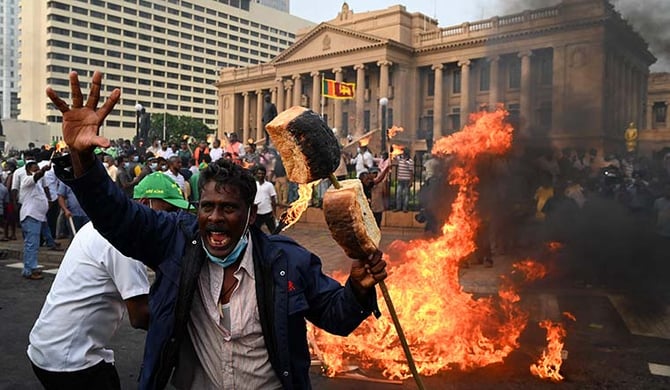Sri Lankan Businesses Agitate for Government Changes

Several business groups in Sri Lanka have asked the president to install a new government and resign immediately thereafter.
With little more than $50 million in foreign exchange reserves, Sri Lanka is basically bankrupt and dependent on external aid and credit from neighboring countries, like India.
After violence erupted across the country this week, some chambers of commerce joined with other Sri Lankan industry bodies to call for senior government changes.
The latest unrest is a new low for a country whose economy has sagged under heavy debts from expensive Chinese-built capital projects.
Several important industries are struggling to maintain production amid fuel and electricity shortages. Tea production in March was down 15% from the same period a year earlier. Tourist arrivals in April dropped 41% from a month earlier.
The cost of borrowing is now excessive after the central bank raised interest rates by a record 700 basis points. Commercial banks are now lending at unaffordable rates of 25% to 30%.
Sri Lanka’s consumer inflation is currently hovering at 30% and is expected to accelerate to 46% in the third quarter.
What does this mean for me?
For the emerging-markets investor, events in Sri Lanka are a sobering reminder that macroeconomics go hand in hand with good governance.
As you develop your portfolio of emerging markets, you may have to keep an eye on the political stability of some nations in ways that are not required for more established countries.
More News

Egypt’s Recovery Gains Traction as Household Pressure Lingers

OECD Warns AI and Tariffs Will Test the Global Economy

Zero Tariffs, Higher Drug Bills as US and UK Reset Pharma Trade

Catastrophe Bonds Go Global as Climate Risk Meets Yield Hunting
.webp)
Canada Shields Steel and Lumber Industries From Tariffs

Trump Drops Selected Tariffs in Response to Inflation Pressures

Tariffs on Mexico Test Nuevo Leon’s Industrial Momentum
